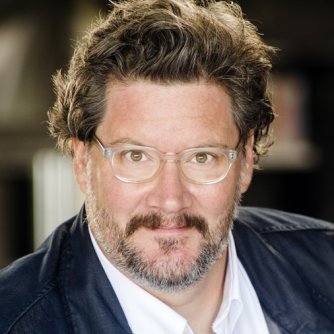
This weekend Scott O’Neil conducts his final Masterworks Program with the Colorado Symphony. After nine years in a role that some only endure for a few, O’Neil is leaving the position of resident conductor -- a job that’s kept him occupied far more than his time on the podium in front of audiences might have you believe.
Like a backup quarterback, a resident conductor for a major orchestra has to be ready at a moment’s notice to lead. To do so, you must study the scores for every piece the symphony is performing, whether or not your name is on the program.
O'Neil's personal imperative was to always be ready to pick up the baton. As he put it: "It’s 3 o’clock in the morning, and I really want to go to bed, but do I dare go to work tomorrow and not be prepared?" The answer was always no.
You might have witnessed this commitment through "Inside the Score" programs, which highlighted O'Neil's ability to explain complex musical ideas to an audience. Watch him break down the rhythmic complexity of jazz guitarist Pat Metheny’s “First Circle,” a piece O’Neil arranged for orchestra and will conduct Saturday and Sunday, in the CPR Performance Studio:
This weekend's concerts will also feature O'Neil conducting a new concerto for electric bass by bass guitarist Victor Wooten and Colorado-born composer Conni Ellisor.
In addition to conducting numerous Masterworks programs over nine seasons, O’Neil has also been the Symphony’s go-to conductor for non-traditional efforts like last year’s concert at Red Rocks sponsored by the marijuana industry, youth programs and genre-crossing projects like DeVotchKa’s performances with the Colorado Symphony.
“I didn't grow up listening to Beethoven and Brahms in the womb,” he told CPR Classical. “When I was a kid, I listened to the Carpenters and ABBA. So when, as an adult, I get to perform with Steve Vai, or Chris Botti and Bela Fleck—I’m really just as happy to perform with those guys as I am with Joshua Bell or Van Cliburn. And I've gotten to do all those here.”
Click the audio link above to listen to the whole conversation. Highlights:
On “humbling yourself” to the music
“All conductors fall short. From Simon Rattle and Claudio Abbado, we all fall short of what these pieces demand. So once you get used to that, now you're just trying to figure out this piece so that you can express it as well as you can.”
A lesson from Marin Alsop, the Colorado Symphony’s former conductor
“As much as people see the conductor as the guy out front taking the credit for everything, what really matters to me is feeling like I'm a contributor. We all have a role to play. Mine, as the conductor, actually doesn't even make a sound. … Good conducting is anything that helps the orchestra play well. Bad conducting is anything that hinders them.”
On what conducting is really about
“I remember hearing people say, ‘Well, you know, being the conductor, he has such great power! You’re standing up there, and everyone has to do what you tell them to, and you’re waving your hands….’ And I try to convince them: It's not power that we have; it’s influence. One of the things I've learned about conducting is that if you give up this notion of power, you can actually gain more influence. But if you try to stick with the power, you'll never have the influence you could have.”









